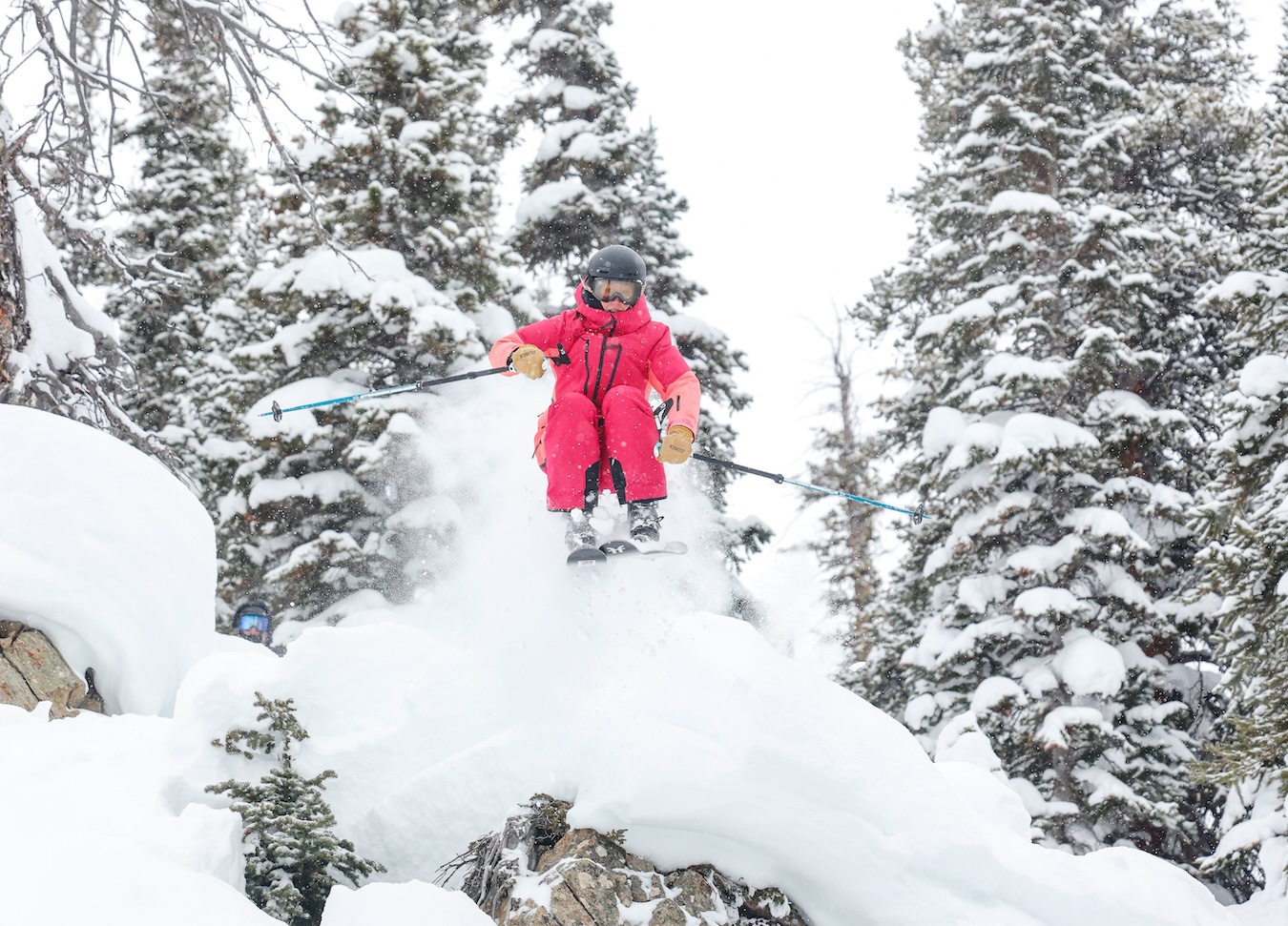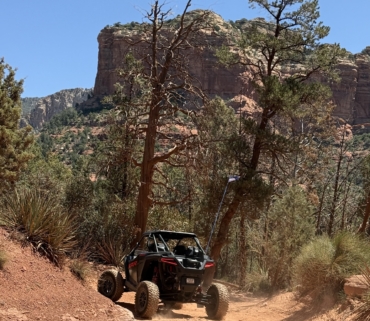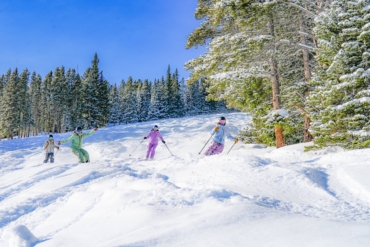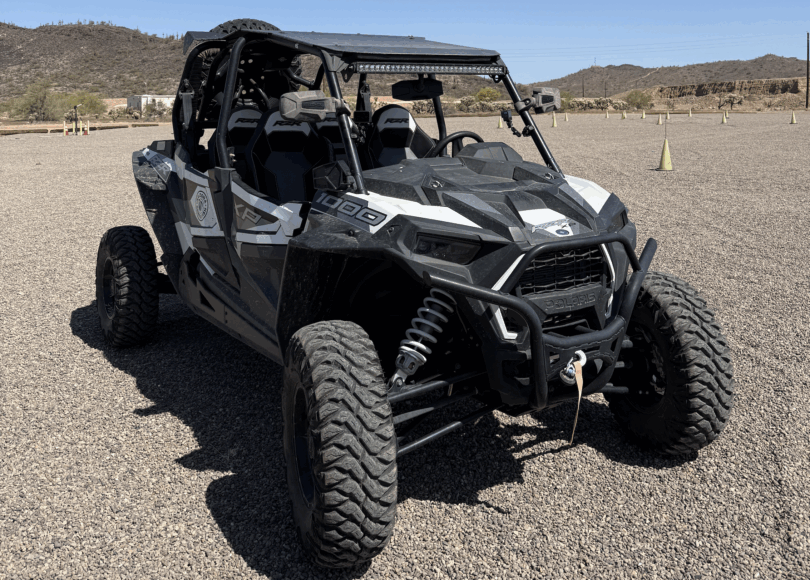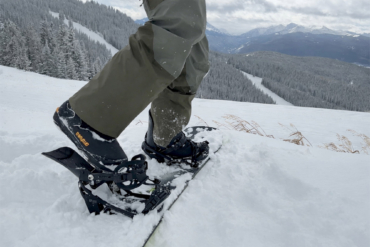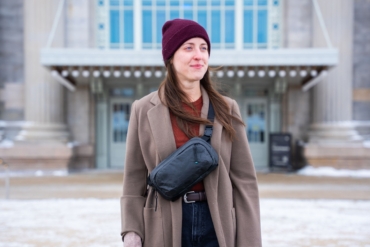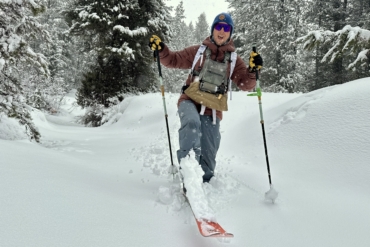This story is brought to you by CBMR, which hosted GearJunkie’s annual ski and snowboard test in 2023.
If you’ve stumbled upon a cliff band or super-steep pitch at a ski area, you know how essential navigation or hiring a guide can be inbounds. Places like Jackson Hole Mountain Resort, Kicking Horse Mountain Resort, and Silverton Mountain spike heart rates (at best).
In Colorado, one ski area sticks out in this camp: Crested Butte Mountain Resort (CBMR). Several lift-accessed zones known as the Extremes ramp up the intensity of the resort.
This terrain historically established a national bar for the gnarliest managed slopes. They still challenge expert skiers and riders today. Here’s the backstory and how to check out the Crested Butte Extremes.
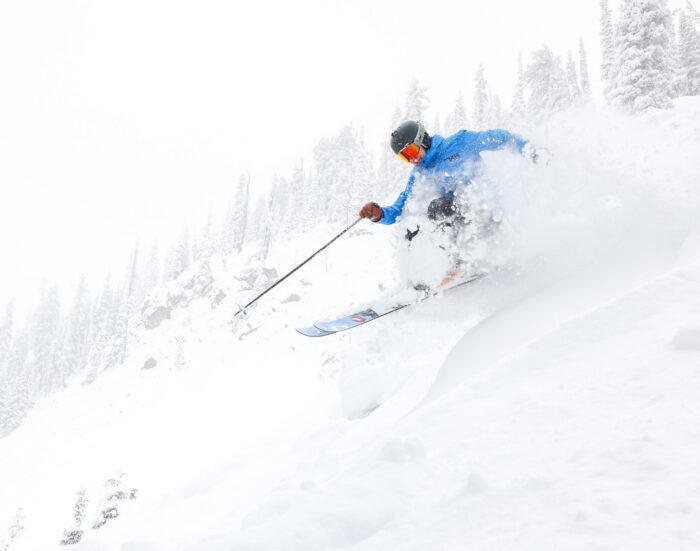
Where to Go: The Extremes of Crested Butte Mountain Resort
When skiers and riders mention the Extremes at CBMR, they’re referring to three areas with a concentration of double-black diamond ski runs.
High Lift
Runs like Big Chute, Headwall, and Teocalli Bowl are among the most prominent laps off the High Lift. To reach the High Lift T-bar, hop on the Silver Queen Express Lift at the base, a.k.a. Mountaineer Square, and then ski a short section down North Star.
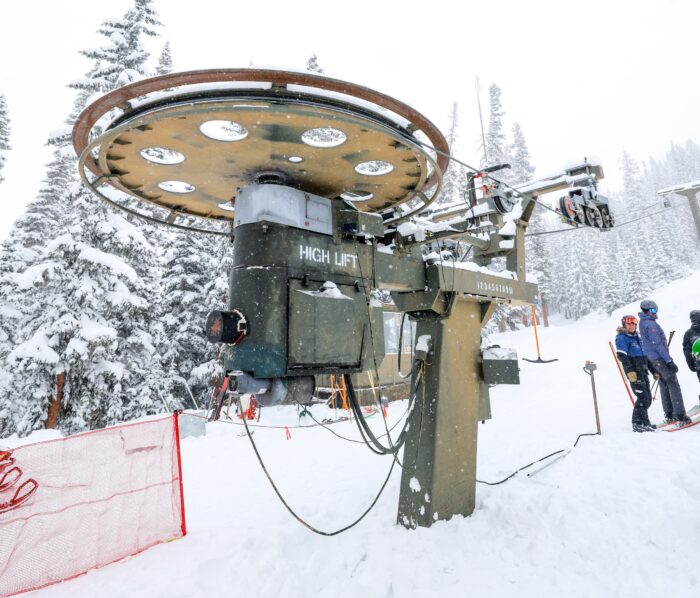
North Face Lift
The other T-bar is the North Face Lift, serving some of the grittiest routes on the mountain. These runs can be hard to identify on the ground. They are clumped into several sections west to east: Third Bowl, Spellbound/Phoenix, Staircase, North Face, and The Glades.
Skiers access this territory when exiting runs off the High Lift. Folks can also drop to the North Face from the top of Paradise Express Lift or take Silver Queen Express Lift and descend Silver Queen Road.
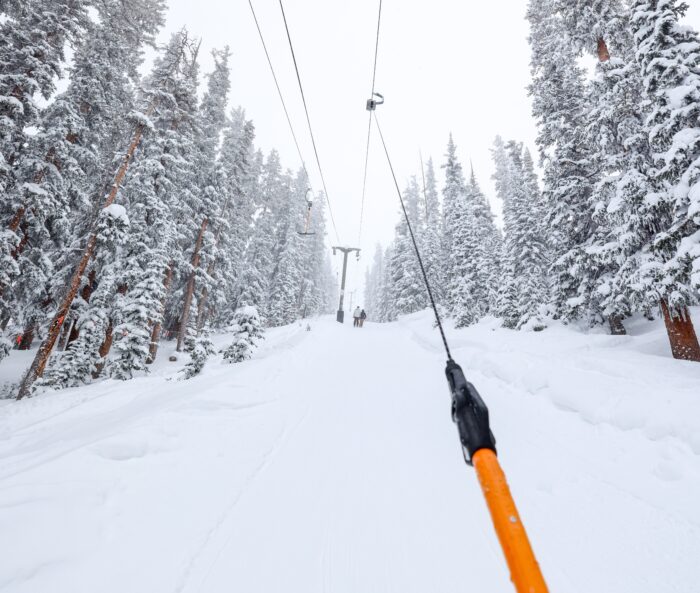
West Side
The West Side encompasses runs that flow off the pointy, iconic Crested Butte Mountain, the face that’s visible from the base.
A few of the most noteworthy runs include Banana, Funnel, and Peel. Take the Silver Queen Express Lift to reach the majority of this zone. Except to hike the Peak, you’ll need to grab the High Lift T-bar.
Learn more about where to go in our GearJunkie article, How to Ski the Extremes of Crested Butte Mountain Resort.
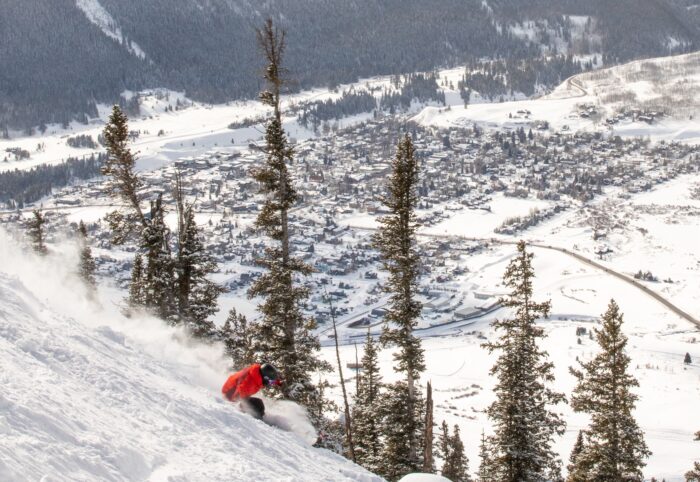
How Crested Butte Established This Wild Terrain
It was a competition.
Breckenridge Resort installed the ski industry’s first-ever high-speed detachable chairlift in 1981.
Soon after, Vail Resorts added four speedy quads in 1985, recalled Colorado Snowsports Hall of Fame inductee John Norton, who’s now the Executive Director of the Tourism and Prosperity Partnership (TAPP) of Crested Butte-Gunnison Valley.
Back then, Norton was the CBMR Senior Vice President of Marketing from 1985 to 1991. He later became CBMR’s CEO in 2002.
“We needed to compete. On a powder day, steep skiing included Resurrection or Twister. The mountain was quite small,” said Norton, who conceptualized accessing terrain via the North Face Lift, the first of the Extremes.
CBMR’s former co-owner, the late Ralph Walton, told Norton to buy the lift from the marketing budget. So, Norton found a used Poma, a surface lift with a disc that skiers straddle, from Colorado’s Ski Broadmoor. CBMR bought and installed the Poma for under $300,000, which was 30% of the marketing budget.
The North Face terrain officially opened in 1987.
“TNF caused so much excitement in the marketplace and paved the way for the U.S. extremes. The rest is history,” said Norton. “Questions we got included: ‘How many people will you kill? How will you get people off the mountain when they’re hurt? How can you do this when it’s so dangerous?’ No one had ever lift-served terrain like The North Face,” he added.
By 1991, Crested Butte installed the High Lift. It was an easy green light after the “home run” of the North Face. The North Face’s T-bar replaced the Poma in 2003.
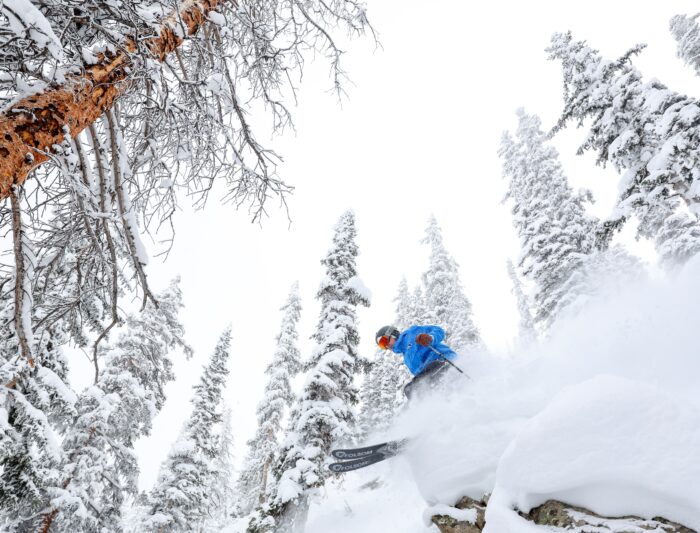
The North Face Extremes Changed the Ski Industry
“The North Face terrain changed the world — it turned us from a small intermediate mountain to the place that was lift-servicing some of the steepest terrain in North America,” said Norton.
As such, the North Face set the venue for the inaugural U.S. Extreme Skiing Championships in 1992, one season after the extreme skiing contest debuted in Valdez, Alaska. “The [U.S. Extreme Skiing Championships] was hosted here for 5 or 6 years and led to the 1998 Winter X Games coming here,” added Norton.
The industry saw a ripple effect. The Crested Butte Ski Patrol, including the 15-year snow safety director Dan Ewert, offered their snow safety skills at Alaska’s World Extreme Skiing Championships.
Previously, ski competitions had focused on bumps. Extreme skiing contests catalyzed boundary-pushing athletes that pioneered the freeski movement: dropping steep, powder-laden, technical, dynamic terrain.
Such a movement attracted Matchstick Productions and professional extreme skiers like Olympian Wendy Fisher, who still call Crested Butte home today.
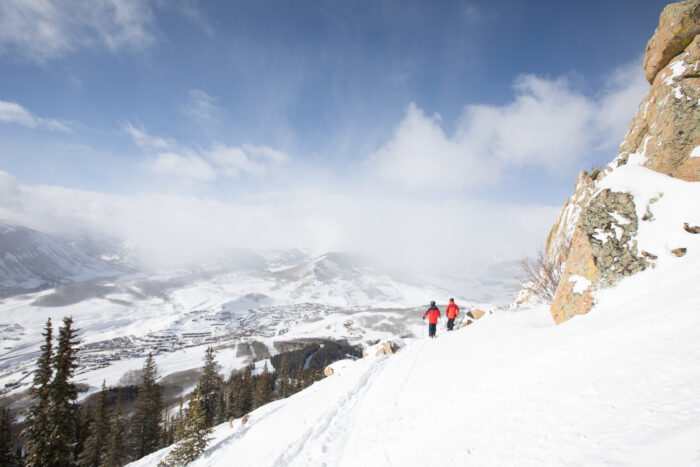
What’s Next at the Extremes of Crested Butte Mountain Resort
CBMR still draws freeskiing contests for juniors and pro-level athletes. Next up, CBMR’s Extremes was selected to host the 2024 YETI Natural Selection Tour DUELS snowboard competition. The winner will continue to the final stage of the event: two competitions at Revelstoke Mountain Resort and the Selkirk Tangiers backcountry between March 10 and 17, 2024.
Founded by Travis Rice, the annual comp series is held on the world’s most challenging natural inbounds and backcountry terrain.
On February 27, the DUELS snowboard competition held at CBMR — between Jamie Anderson and Emma Crosby — will air online for free via Red Bull TV. Before then, you might catch the athletes at the competition’s complimentary concert at CBMR’s base area on February 10, 4-6 p.m.
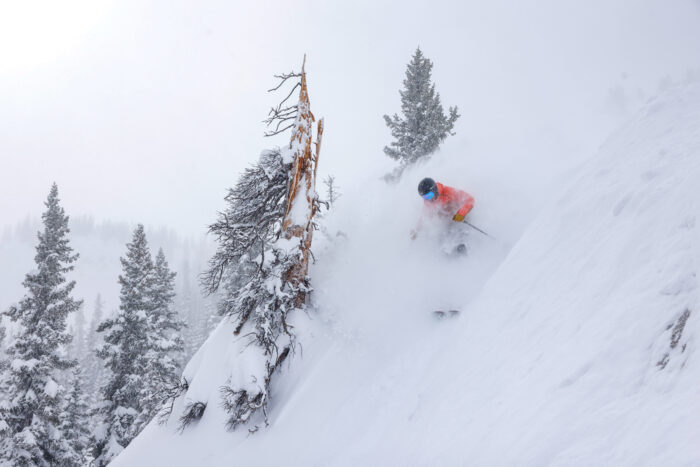
Learn more at skicb.com.
